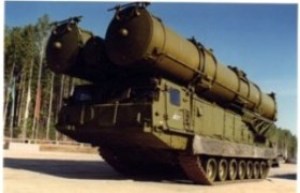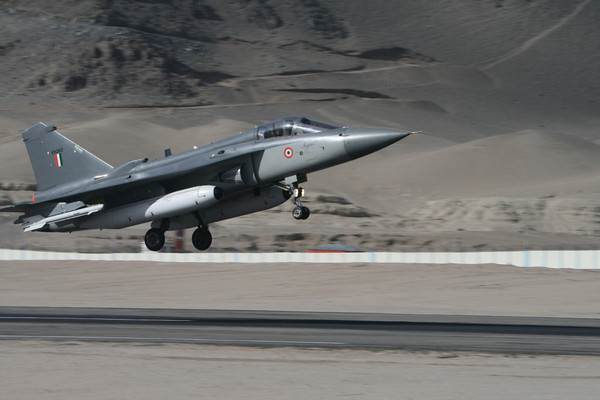
The Antey-2500 missile. An Almaz Antey photo
MOSCOW (AFP): A surface-to-air missile has crashed shortly after being launched in northern Russia, Russian news agencies said.
An official speaking on condition of anonymity initially told AFP the incident had involved an experimental military rocket, but state-owned weapons manufacturer Almaz-Antey was later quoted as saying it was an Antey-2500 missile that fell back to the ground.
The test was meant to "give an assessment of the manoeuvrability of a modernised missile of the surface-to-air Antey-2500 missile system," the firm's spokesman told Russian news agencies.
The missile "veered off course and self-destructed" shortly after its launch, the spokesman said, with debris falling within the security zone of the Plesetsk military cosmodrome.
The Antey-2500 missile system is an upgraded version of Russia's sophisticated S-300 air defence system. Russia in February notably offered to deliver the new missiles to Iran.
Regional authorities said in a statement the crash happened seven kilometres from the Plesetsk military launch pad in the northern Arkhangelsk region, without giving details of the device that was launched.
An official from the Arkhangelsk region had earlier told AFP that a military rocket had crashed without causing injuries or damages.
The Russian space agency declined comment. The defence ministry provided no immediate comment.
President Vladimir Putin has made modernising the army a top priority of his 15-year rule, with the armed forces acquiring new missiles and other weapons after years of post-Soviet neglect.
Russia's space industry has suffered a series of setbacks in recent years but accidents at the Plesetsk military cosmodrome are believed to be very rare.
Amid huge sensitivities surrounding Russia's military programme, Moscow appeared to enforce a virtual blackout on the crash.
 Previous Article
Previous Article Next Article
Next Article












The Indian Air Force, in its flight trials evaluation report submitted before the Defence Ministry l..
view articleAn insight into the Medium Multi-Role Combat Aircraft competition...
view articleSky enthusiasts can now spot the International Space Station (ISS) commanded by Indian-American astr..
view article